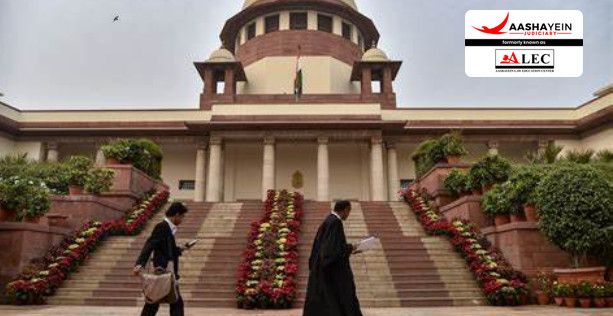The Supreme Court of India has agreed to entertain an appeal filed by K. Shahul Hameed, a teacher from Kerala who was dismissed from service for protesting against his school management. A bench comprising Justices Abhay S. Oka and Augustine George Masih criticized Hameed’s actions, emphasizing the importance of discipline, particularly for someone in his position as an educator. The Court remarked that a teacher responsible for enforcing discipline among students must demonstrate discipline themselves, highlighting his misconduct of protesting outside the school premises. The Court agreed to consider his plea for reinstatement on the condition that he submits an undertaking assuring he will not engage in similar actions in the future.
Background of the case
Hameed, a lab assistant at MSM Higher Secondary School in Malappuram district, challenged his suspension in August 2007 and subsequent termination in March 2008 before the Supreme Court. The termination was based on allegations that he participated in a ‘satyagraha’ protest in front of the school and disrupted a meeting of the Parent-Teacher Association (PTA).
During the hearing on December 17, the court adjourned the matter to March 5, directing the Kerala government and the school management to submit their responses. Earlier, on November 28, the court issued a notice on the petition, observing that the protest by the teacher against the management was inappropriate.
Advocate Abid Ali Beeran P, representing Hameed, argued that his client’s protest was aimed at exposing alleged misdeeds of the school management.
Accusing the school manager of harboring a personal vendetta, Beeran argued, “Others who protested were not penalized, yet I am being removed from service solely due to my enmity with the school manager.” Representing Hameed, his lawyer highlighted the injustice, stating, “At 42 years of age, after 15 years of service, it is unreasonable to expect me to find another job.”
You can also read the latest judgment by visiting [Latest Judgment].
For more information, visit [Aashayein Enquiry Section]
Remark of the Court
The court addressed Hameed, stating, “You are a schoolteacher. If you wish to protest against corruption, you must first leave the institution. Sitting in satyagraha against your own employer is not appropriate.”
About the Satyagraha
Hameed faced disciplinary action for participating in a satyagraha along with another teacher outside the state-run school on July 31, 2007. Admitting to the charges, his case was referred by the school manager to the Director of Higher Secondary Education for an inquiry. The Director concluded that the charges were proven but issued a warning against repeating such conduct. Additionally, the Director directed the school management to reinstate Hameed.
Dissatisfied with the punishment, the school manager approached the Kerala High Court, asserting that under the Kerala Education Rules, the authority to impose punishment rests with the manager, not the Director. The High Court ruled in favor of the manager, who, after granting a hearing, terminated the employee’s service effective March 28, 2008. The suspension period from August 3, 2007, to March 27, 2008, was treated as “leave without allowance.” This punishment was subsequently approved by the Director in September 2010.
The employee's initial challenge against his dismissal was dismissed by a single-judge bench of the Kerala High Court in November 2015. This decision was upheld by a division bench of the High Court in September 2019, which then became the subject of appeal before the Supreme Court

